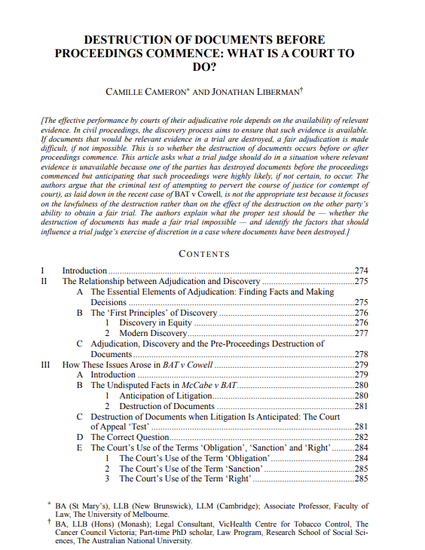
- Civil Litigation,
- Destruction of Documents,
- Fair Trial,
- Civil Procedure,
- Discovery
The effective performance by courts of their adjudicative role depends on the availability of relevant evidence. In civil proceedings, the discovery process aims to ensure that such evidence is available. If documents that would be relevant evidence in a trial are destroyed, a fair adjudication is made difficult, if not impossible. This is so whether the destruction of documents occurs before or after proceedings commence. This article asks what a trial judge should do in a situation where relevant evidence is unavailable because one of the parties has destroyed documents before the proceedings commenced but anticipating that such proceedings were highly likely, if not certain, to occur. The authors argue that the criminal test of attempting to pervert the course of justice (or contempt of court), as laid down in the recent case of BAT v Cowell, is not the appropriate test because it focuses on the lawfulness of the destruction rather than on the effect of the destruction on the other party’s ability to obtain a fair trial. The authors explain what the proper test should be — whether the destruction of documents has made a fair trial impossible — and identify the factors that should influence a trial judge’s exercise of discretion in a case where documents have been destroyed.
